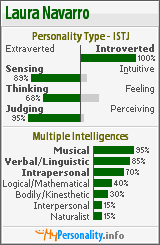 I am using the Church at the Cross Reading plan (see link to right) and have caught up with the December Advent readings. It’s been interesting to be in Isaiah and Mark, and I’ve come up with some thoughts and questions (not necessarily answers) that I thought I’d put down in a blog post.
I am using the Church at the Cross Reading plan (see link to right) and have caught up with the December Advent readings. It’s been interesting to be in Isaiah and Mark, and I’ve come up with some thoughts and questions (not necessarily answers) that I thought I’d put down in a blog post.
Is 5 referred to Is 27 so I skipped ahead. That chapter talks about God defeating Leviathan definitively. I thought of this in light of the readings in Job that I mentioned 2 posts back. Does this indicate that the agents of chaos will no longer be needed so they will all be destroyed? I know the commentator in Job was comparing Leviathan to God, but the point to the passage was that chaos is a part of creation at this time until all is brought under dominion. Anyway, interesting thought.
Isaiah is constantly switching between descriptions of punishment and descriptions of the blessings to come for the remnant.
Is 13 – the day of the Lord will be an awful day (hard, threatening, and full of awe).
Mark 1-3 – did Jesus and John spend much time together at family get togethers? Did they know each other well before the baptism? John seems to accept who Jesus is easier than mother and brothers as his ministry starts. Questions came when John’s life was in danger.
The time is now come for Jesus to start his ministry – seems to be based on the arrest of John the Baptist. The last of the Old Testament prophets, signaling the end of an age and showing Israel still doesn’t know how to treat the messengers of God.
The scribes didn’t teach with authority? Or at least not with the spirit filled authority of Christ.
Peter’s mother-in-law is healed and she gets up and serves them, fulfilling her duties as hostess. And probably very grateful to be able to repay (not earn), to express her love.
After so much activity and attention, he went away to pray. He was constantly in prayer, but also needed quiet devoted time.
Moves on, doesn’t try to heal or fix everyone. They are temporary fixes anyway. He is here to bring eternal healing and salvation.
Plethora of demons during this time – due to the incarnation?
Spreading the news prevented him from going to some places so some people didn’t get to see him. Even the demons yell out his identity. Do this knowing it will make his ministry more difficult?
Mark 4 – The storm and the boat. Is he rebuking how afraid they were and how they approached him? Should they have calmly asked if he could do something? Should they have had the power and authority to handle the storm since he seems to treat it as a demon and he has just selected them in order to start sending them out?
Mark 5 – here he actually tells the man to tell others what has happened? Why the change? Because such a dramatic witness to the grace and mercy, not just a simple healing?
Yet then he heals Jairus’s daughter and say tell no one. Yet people knew she was dead and now she isn’t. He can’t keep this one a secret.
Mark 6 – no honor in his hometown. Marveled at their unbelief that “limited” his power.
Walking on the water and “meant to pass by” – he expected to be recognized, seen, and stopped. Allowing them to invite him onboard (per Hendrickson).
Why do they not get it yet? He’s so normally human? Not the type of Messiah they would pick? It’s such a gigantic concept?
Mark 7 – went into Tyre just for this appointment with the gentile mother? A few more short trips seem to follow the same pattern.
Mark 9 – he tells them he will rise from the dead. They don’t get it but they don’t ask about that. Instead they come up with some question about Elijah. Even then he includes a comment about his suffering and they still don’t ask what he means.
Calvin indicates the father seems to be saying “can you, just another prophet, do anything? Your disciples can’t” And the scribes had been there arguing that Jesus was just a man. No wonder the father is doubtful. But Jesus explains his power is inexhaustible and puts it back on the father’s faith. The man is starting to figure it out and realize Christ is someone more. He believes (something) and recognizes he needs help to believe more and more clearly.
Jesus again says he must die. They still don’t understand but instead of asking, they argue about who will be first. And they don’t even understand what they want to be first in.
Abrupt sentence re: hell for those who sin and then discussion of fire not quenched to suddenly talking about salted with fire. Seems to be a contrast of believers vs persistent sinners. We should be purified and then be salt to the world. To lose that is tragic,



